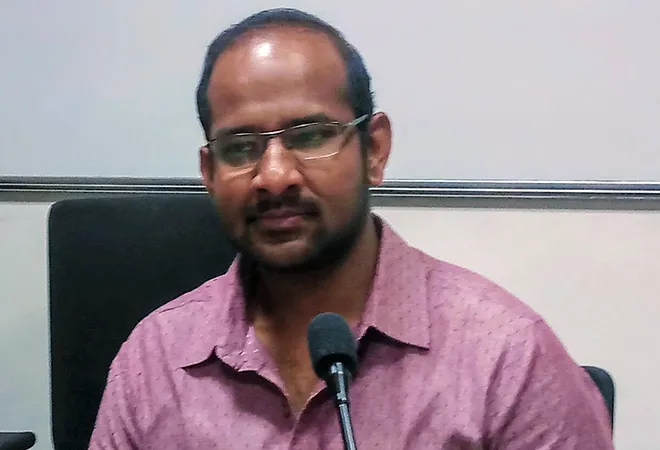“The bi-polar global format is undergoing a painful transition to a multi-polar world” said Consul-General of Russian Federation in Chennai, Oleg N Avdeev. Initiating a discussion on the
‘India-Russia Relations and Contemporary Geo-political Scenario’ at Observer Research Foundation, Chennai, on 7 December 2019, Avdeev spoke of how present-day geo-strategic and geo-political scenarios are shaping the world order.
Avdeev spoke at length about how the old world order set in place after the end of World War II is crumbling and is moving away from a UN-centric order to a rules-based order, where players are increasingly working towards signing treaties and agreements in small groups and in secret. This, he believes, is chipping away the significance of established international relations. He also opined that countries with significant leverage are using their commanding positions to subjugate smaller players and dictate their will. This, Avdeev believed, was in contravention to the existing ethos.
The Russian diplomat also said that the global-transition has left a lot of countries at the cross-roads. He noted that serious attempts were underway to deliberately undermine the arms control structure. He opined that this is a threat of global proportions which must be resisted by all means, else the consequences of the present day upheaval could be catastrophic. Multipolarity, he believed, is the only order which would promote the comprehensive development of all parties and would conform to the present-day narrative. Both big and small should benefit.
Emerging issues
Throwing light upon emerging issues such as climate change and contemporary issues such as terrorism, he noted that the international community is yet to find solutions and pointed to the lack of consensus on several such pressing issues. This is where he felt India and Russia, with their long history of cooperation, could jointly work together to shape a new world order. He believed that the two countries can work in tandem to tilt the balance of power in favour of the soviet approach to shape the emerging world order.
Talking about India-Russia relations, he remarked that the relationship is expansive and has several facets in terms of cooperation. Avdeev spoke at length on how energy has traditionally been a key area of cooperation between the two countries. He observed that India and Russia were successful partners in nuclear cooperation. Taking the example of the Kudankulam nuclear power plant, he said that the project was a cornerstone of the relationship between the two countries and when completed would be the largest of its kind. He was also positive about how the project would benefit the whole of the south Indian state of Tamil Nadu.
Elsewhere, in non-nuclear energy cooperation, Avdeev remarked that Russia’s vast energy resources and India’s growing appetite for hydrocarbons went hand in hand and that there was further scope for the two countries to build on their existing ties in this area. He was positive that the Russian crude oil could soon find its way to India through the North Sea route. He also touched upon how energy cooperation has opened up other opportunities such as setting up shipping corridor between Vladivostok and Chennai.
Speaking on foreign policy, Avdeev remarked that the countries shared similarities in their priorities and has been a harbinger of friendship for both countries. This, he believed, has been marked by regular bilateral visits. He remarked that BRICS, of which India and Russia were both founding members, is now widely regarded as a counterweight to G7. BRICS supports multilateralism, free trade, rejects unilateral economic sanctions something which the speaker believes is counterweight to sinister efforts by other players. He also remarked that the Shanghai Cooperation Organization, of which both India and Russia are members, shares a similar objective and that the Vladivostok summit reaffirmed the same.
Avdeev concluded by talking about cooperation in the area of aviation and space. He remarked that the relationship between India and Russia has progressed from being buyer-seller to one of technology partners. He spoke about the deep standing ties between the space agencies of either countries, ROSCOSMOS and ISRO, and how Russia is now helping Indian astronauts embark on their maiden voyage to space in the Gaganyaan project.
This report was written by Gururag Kalanidhi, Chennai
The views expressed above belong to the author(s). ORF research and analyses now available on Telegram! Click here to access our curated content — blogs, longforms and interviews.
